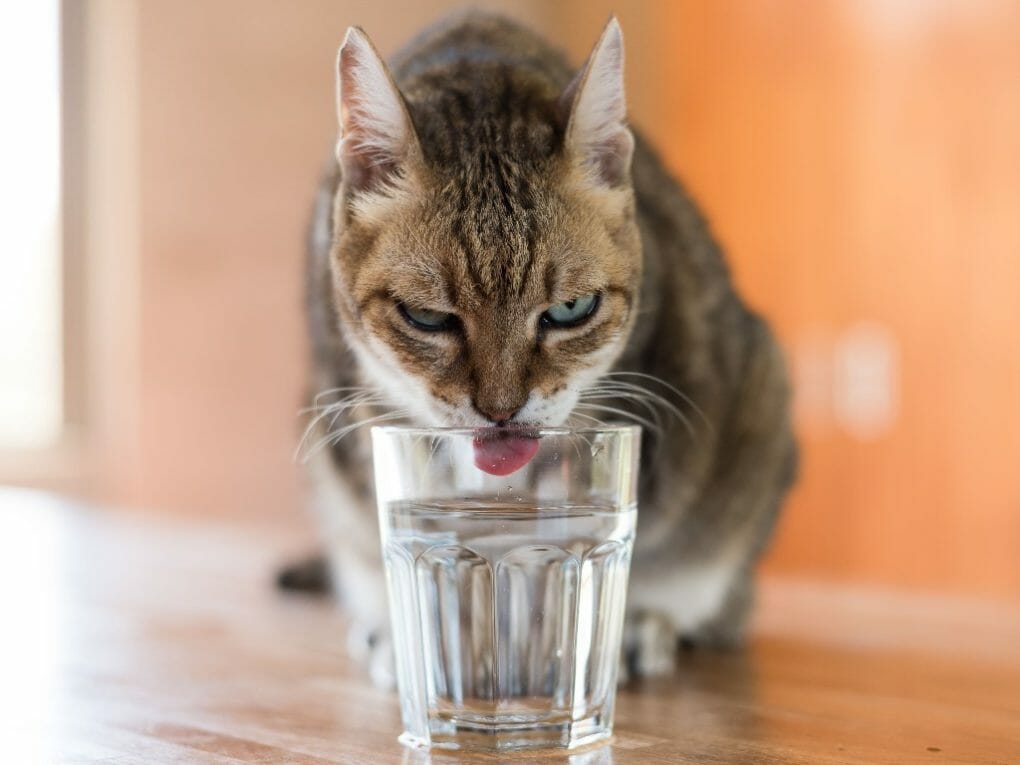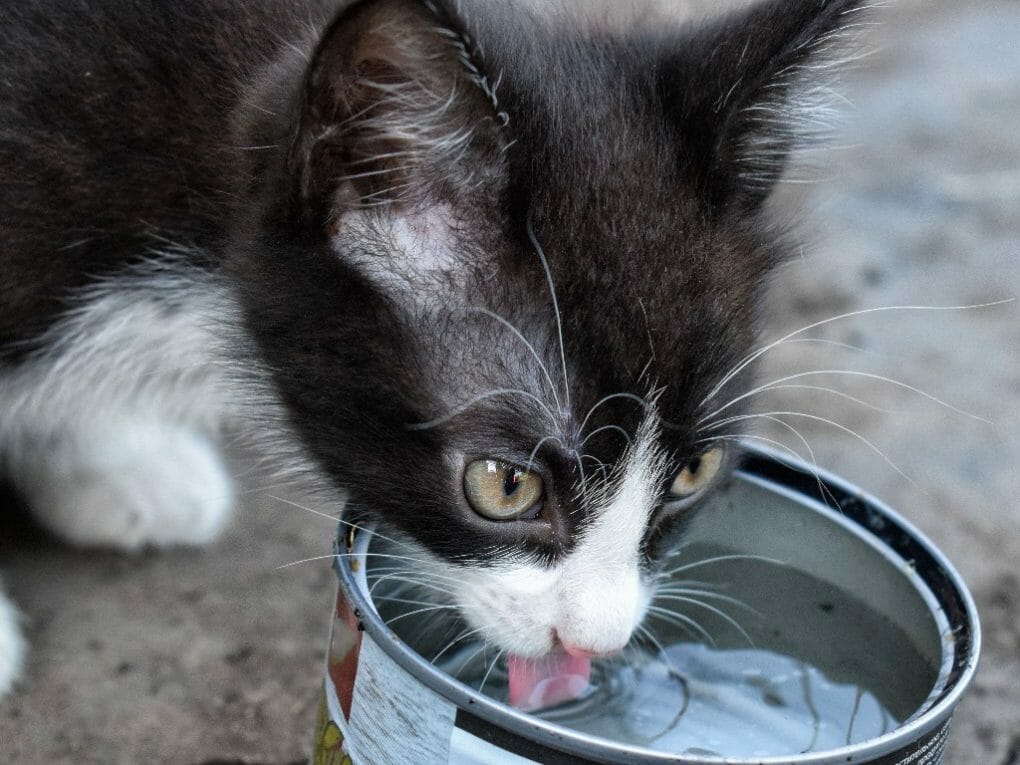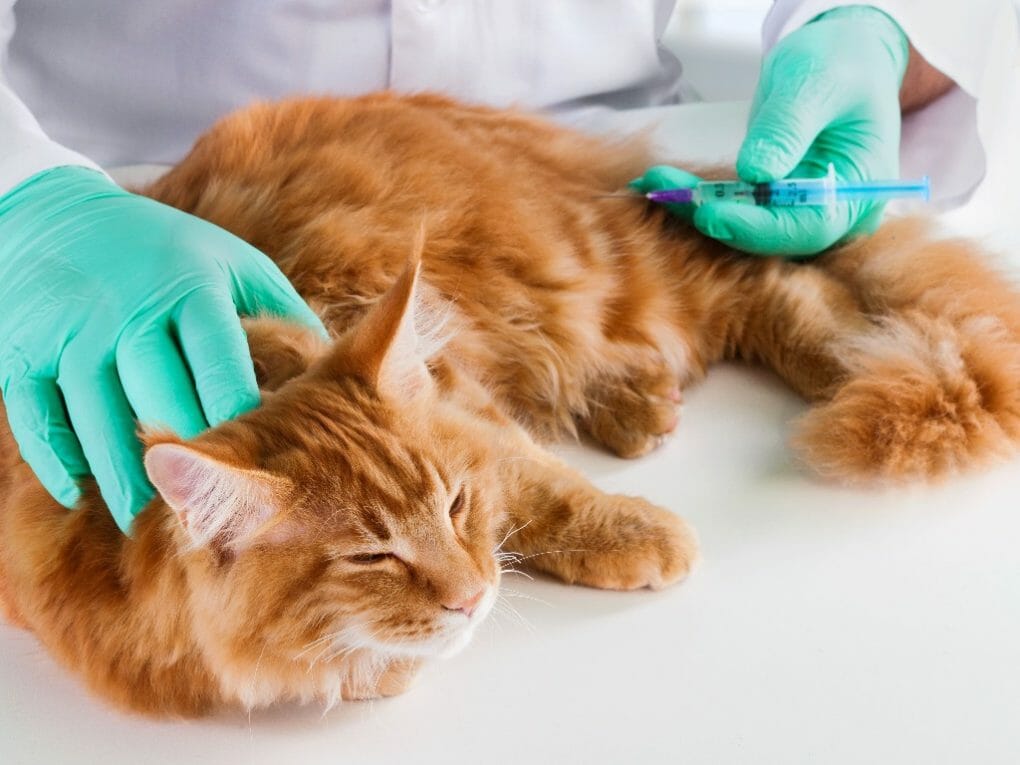Cat Who Drinks a Lot of Water: The Ideal Cat Water Intake and Their Reasons for Exceeding It


It can be hard to tell when your cat is drinking too much water, but if you notice that they’re drinking more than usual, it might be time to check them. Then, when they’re bored or stressed, they’ll turn to water as their primary form of entertainment.
Table of Contents
How Much Water a Cat Should Drink
A cat’s water intake is crucial for its health. Generally, a cat should drink about4 ounces of water per 5 pounds. This amount can be increased if the cat is overweight or lives in a hot climate.
Ensure to provide your cat with plenty of fresh water indoors and outdoors, and change its water regularly to avoid water-related health problems.
When It Is Too Much
Kittens and cats are notorious for drinking a lot of water. Generally, cats need to drink water to stay hydrated, but how much water they need to drink varies depending on their size, weight, and activity level.
If you think your cat is drinking too much water, take them to the vet for a check-up or consult with a pet physician. Monitoring your cat’s drinking habits is vital to ensure they get the proper daily water intake.
Why Cats Drink a Lot of Water
Chronic Kidney Disease
Chronic kidney disease is a condition that affects the kidneys. The health of these organs can be seriously damaged by various factors, including environmental toxins and sedentary lifestyles.
If you think your cat might have chronic kidney disease, consult your veterinarian as soon as possible. Common causes of this condition include urinary tract infection, indigestion, liver disease, diabetes mellitus (a disorder in which sugar levels are too high), and renal failure (when the kidneys fail to do their job).
If any of these factors are present in your cat’s case, getting them treated promptly is essential so they can start recovering their health as quickly as possible.
Hyperthyroidism
Suppose you’re noticing any of the following signs in your cat. In that case, it may be hyperthyroidism: increased thirst and urination, hoarse voice, rapid weight gain or loss, or changes in appetite or behavior. Talk to their veterinarian about possible treatment options if you think your cat may have hyperthyroidism.
Diabetes Mellitus


If you’re worried about your cat drinking a lot of water, it might be because he has diabetes mellitus. Diabetes mellitus is one of the most common causes of cats drinking excessive water. If left untreated, this disease can cause many health problems for your cat, including kidney failure and even death.
Fortunately, there are various treatments available that can help to manage diabetes mellitus and improve your cat’s overall health. Depending on how severe the condition is, cats may need insulin injections or dietary modifications such as reducing sugar intake. In some cases, diabetes mellitus may never require any treatment – if it’s discovered and treated early during kittenhood or infancy.
Urinary Tract Infection
Urinary tract infections (UTIs) are one of the cats’ most common health problems. If you think your cat has a UTI, it is vital to take them to the vet for a check-up. While there are several ways to treat UTIs naturally, most cats will require antibiotics to clear up their infection completely.
Keeping an eye on your cat’s litter box is also crucial – if it starts smelling bad, some urine might be backing up, and your cat might have a urinary tract infection! Ensure they’re drinking enough water, too – dehydration can lead to kidney failure in cats, so keep an eye out for any changes in thirst or appetite!
Ultimately, making these simple adjustments will go a long way toward helping prevent urinary tract infections from happening in the first place.
When to See a Vet for Excessive Drinking in Cats
When your cat is drinking a lot of water, make sure they’re getting enough food and exercise – if they’re overweight or not getting enough physical activity, their thirst will be harder to control. Elevate their water bowl, so they must stretch more to drink from it and ensure the dish is clean. If all else fails, take your cat to the veterinarian for an evaluation!
Drinking More Than Average
If you notice your cat drinking excessive water, it’s best to take them to the vet. In most cases, cats drinking more than 4 ounces per 5 pounds indicate a health issue or problem with their urinary tract.
If left untreated, this could lead to kidney failure and even death. But ultimately, it is up to you and your veterinarian to decide if intervention is necessary – but at least knowing about the potential issues will put you in a better position should something happen.
Goes to the Water Dish Over and Over Again
If you notice that your cat is drinking a lot of water but not eating, it is most likely time to take them to the vet.
Other symptoms that might suggest kidney or diabetes problems include excessive drooling and vomiting. If these symptoms continue unabated or worsen, it’s essential to contact a veterinarian as soon as possible for evaluation.
Some common causes of cats drinking too much water can be traced back to kidney disease or diabetes mellitus; if either of these conditions is present in your cat, they will need specialized care and treatment from a veterinarian.
Always keep your cat’s health in mind by consulting with a vet before any changes – even if they seem minor at first glance!
Increased Thirst Is Paired With Trouble Urinating
If you notice that your cat is drinking much water and urinating less, it’s essential to consult a vet as soon as possible. This could indicate a urinary blockage or some other underlying health problem.
If the problem isn’t addressed quickly, your cat might suffer from increased thirst and difficulty urinating, which can lead to kidney failure.
Cats’ most common causes of urinary tract problems include feline interstitial cystitis (FIC), struvite stones, bladder cancer, reflux disease, etcetera. If unsure why, don’t hesitate to take your cat for a veterinarian check-up to rule out any serious issues.
Diarrhea


If your cat has a lot of diarrhea, it is time to go to the vet. Diarrhea can indicate many different things, so you should consult them first before making any assumptions or taking any actions on your own.
This way, they can rule out serious health concerns and prescribe the correct treatment(s). Treatment usually involves antibiotics and sometimes electrolytes if dehydration is an issue. If the diarrhea is severe, your cat might be in danger, and you should seek help immediately.
